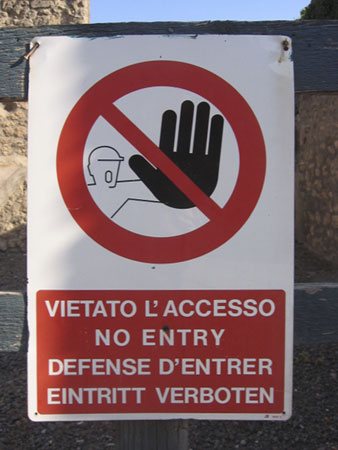
According to an editorial in today’s Washington Post, “It’s become a fad among some conservatives to refer to the junior senator from Illinois by his full name: Barack Hussein Obama. … The senator, however, does not use his middle name. Those who take pains to insert it when referring to him are trying, none too subtly, to stir up scary images of menacing terrorists and evil dictators.”
First of all, let’s be glad the poor senator’s last name isn’t one consonant different.
The Post is a liberal newspaper and so doesn’t have much time for the likes of Rush Limbaugh and the other conservatives cited in the editorial, so its definition of “fad” may involve fewer people that it would take me to make the same categorization. But even if only two or three influential people are doing it, how stupid and potentially dangerous!
There are men and boys all over the Middle East called Osama (a friend of mine used to be married to one) and Hussein. There are men and boys all over Germany called Adolf. There are men and boys all over Italy called Benito and Cesare, not to mention girls and women called Lucrezia. That’s supposed to prove something about them?
If you start reading something into names, here are a mere handful you’d be disinclined to give your brand new baby: Myra, Ian, Charles, David, Jack, Elizabeth, Timothy, John (oops, there goes the English-speaking world’s most popular boy’s name), Edward, Jeffrey, … I could go on, but I’m sure you get the picture.
“The senator, however, does not use his middle name.” Here’s my advice to Senator Obama: Start using your middle name. In fact, insist that it be used at all times and make a fuss when it isn’t. Beat the jerks at their own juvenile game.
Warning to my friends: I was named for someone who lopped off another person’s head. It was quite a while ago, but you can never be too careful.
Thank you to my serial-killer-named friend who brought the editorial to my attention.



 Posted by Judith
Posted by Judith 





